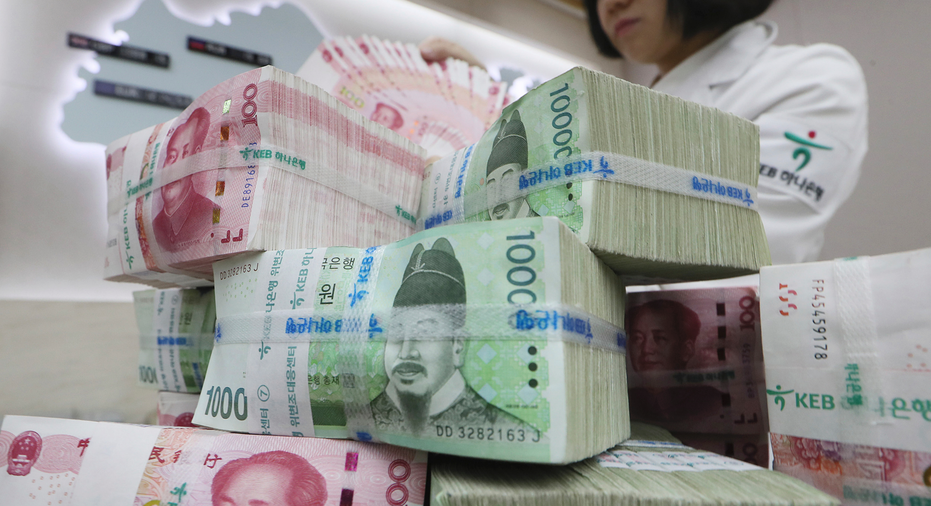South Korea, China extend currency deal despite missile row

South Korea and China have agreed to extend their currency swap deal, Seoul said Friday, easing concerns the deal would fall through due to tensions over a U.S. missile defense system.
The two Asian countries renewed the deal worth 64 trillion won or 360 billion yuan ($57 billion) for another three years, Bank of Korea, South Korea's central bank, and its finance ministry said.
The announcement was first shared by the Bank of Korea governor and the country's finance minister with South Korean reporters in Washington, D.C., where they were attending a meeting of Group of 20 finance ministers and central bankers.
The move keeps the two countries' already soured relationship from further deteriorating. South Korean companies' businesses have suffered in China amid friction over South Korea's deployment of a U.S. anti-missile system known as THAAD. Hyundai Motor Co. was one of the biggest victims of China's ire toward the U.S. missile defense system. The South Korean carmaker saw its sales in China plunge during the first half of this year to nearly half of last year's sales.
Currency swap deals allow countries to borrow money from other countries in their own currency, useful especially at a time of financial turmoil.
Bank of Korea said the deal extension will help stabilize financial markets and boost trade between the countries.
South Korea's foreign ministry welcomed the agreement, which will be a "stepping stone toward further cooperation between the two countries in other fields," its spokesman, Noh Kyu-duk, said at a media briefing.